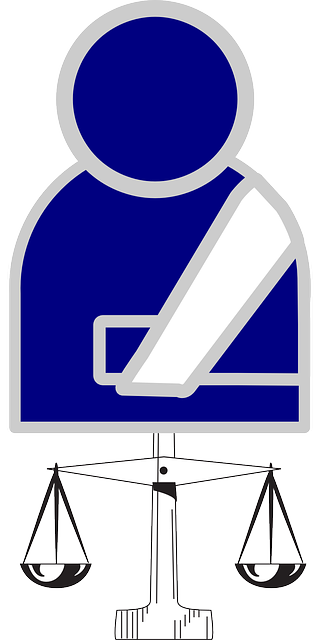Motorcycle Accident Compensation Delays: Navigating Disputes and Accelerating Claims

In case of a motorcycle accident, understanding legal rights regarding motorcycle accident compensat…….
In a world where motorcycling is celebrated as a liberating and adventurous mode of transport, the potential risks associated with it cannot be overlooked. Motorcycle accidents, often resulting in severe injuries or even fatalities, have prompted the development of compensation systems worldwide. This comprehensive article delves into the intricate world of motorcycle accident compensation, exploring its purpose, mechanisms, global impact, and future trajectory. By understanding this critical aspect of motorcycling, riders, advocates, and policymakers can ensure a safer and more supportive environment for the motorcycle community.
Motorcycle accident compensation refers to a legal and financial mechanism designed to provide support and redress to individuals who have suffered harm in motorcycle collisions. It encompasses various forms of assistance, including medical expenses, income loss, disability benefits, and pain and suffering damages. The primary goal is to mitigate the financial burden and emotional trauma experienced by victims and their families.
Key components include:
The concept of compensating motorcycle accident victims has evolved over time, reflecting societal changes and advancements in healthcare and insurance practices. Historically, motorcyclists often faced challenges in seeking fair redress due to their perceived higher risk on the roads. Early compensation systems were largely ad hoc, with varying levels of support offered by local communities or insurance providers.
The modern approach to motorcycle accident compensation emerged as a response to increasing motorcycling popularity and growing awareness of road safety issues. Many countries have implemented comprehensive legal frameworks, ensuring victims receive structured and fair compensation. This development aligns with broader trends in personal injury law, emphasizing the rights and well-being of individuals affected by accidents.
Motorcycle accident compensation has a profound global impact, with each region adopting unique approaches shaped by cultural, legal, and economic factors. The influence can be seen in:
| Region | Compensation Approach | Notable Features |
|---|---|---|
| North America | Strict liability and no-fault insurance systems | These regions often mandate personal injury protection (PIP) insurance, ensuring victims receive basic compensation regardless of fault. |
| Europe | Complex system with varying levels of state involvement | European countries offer a mix of public and private compensation schemes, with some providing comprehensive coverage for all citizens. |
| Asia Pacific | Varied systems with a focus on cultural norms | In this diverse region, compensation practices range from community-based support to robust legal frameworks, reflecting local traditions and economic development. |
| Middle East | Traditional tort law with emerging reforms | Some countries are modernizing their compensation systems to better address motorcycling-related injuries, incorporating best practices from global models. |
The motorcycle accident compensation market is influenced by several economic factors:
Compensation funds are typically derived from several sources:
The economic impact of motorcycle accident compensation is multifaceted:
Technology has revolutionized motorcycle accident compensation in several ways:
The future of motorcycle accident compensation technology holds immense promise:
Motorcycle accident compensation is governed by a web of policies and regulations:
Policies and regulations play a critical role in shaping the following aspects:
Despite its benefits, motorcycle accident compensation faces several challenges:
Addressing these challenges requires a multi-faceted approach:
The following case studies illustrate successful implementations of motorcycle accident compensation:
Case Study 1: Australia’s Motorcycle Safety Fund
Australia’s Motorcycle Safety Fund provides comprehensive compensation for motorcyclists involved in accidents. Key features include:
Case Study 2: Japan’s Comprehensive Compensation System
Japan offers a unique system where local communities support motorcycle accident victims. The approach includes:
Case Study 3: Germany’s Rigorous Insurance Requirements
Germany mandates comprehensive insurance for all motorcyclists, with strict liability laws in place. The system features:
The future landscape of motorcycle accident compensation is poised for significant developments:
To navigate the future, stakeholders should consider:
Motorcycle accident compensation is a vital component of motorcycling culture, ensuring riders receive the support they need after accidents. This article has explored its historical context, global impact, economic considerations, technological advancements, policy frameworks, challenges, and successful case studies. As the motorcycle community continues to grow globally, the importance of robust and adaptive compensation systems becomes increasingly evident.
By addressing the challenges and embracing emerging trends, stakeholders can enhance the effectiveness and accessibility of motorcycle accident compensation. This article serves as a comprehensive resource for motorcyclists, advocates, and policymakers, encouraging informed discussions and strategic decision-making to shape a safer and more supportive future for riders worldwide.
Q: What happens if I’m involved in a motorcycle accident?
A: In the event of an accident, prioritize your safety and seek immediate medical attention. Contact your insurance provider as soon as possible to initiate the claims process. Document all details related to the incident, including witness statements, police reports, and medical records.
Q: How does no-fault insurance work in motorcycle accidents?
A: No-fault insurance laws ensure that accident victims receive compensation regardless of who caused the accident. Insurers investigate the claim and determine benefits based on policy terms, fostering a culture of mutual support within the motorcycling community.
Q: Can I lose my license after a motorcycle accident?
A: The impact on your license depends on local laws and the severity of the accident. In some cases, you may face temporary license suspension or restrictions while ensuring your fitness to ride safely. It’s essential to understand the post-accident procedures in your jurisdiction.
Q: What types of damages can I receive from motorcycle accident compensation?
A: Motorcycle accident compensation typically includes medical expenses, income loss, disability benefits (if permanently injured), pain and suffering, and legal fees. The specific amounts and coverage vary by region and insurance policies.
Q: How long does it take to receive motorcycle accident compensation?
A: Processing times vary depending on jurisdiction and the complexity of the case. On average, claims can take 3-6 months to resolve, but some may take longer due to legal procedures and medical assessments. Efficient digital processes can significantly reduce these timelines.

In case of a motorcycle accident, understanding legal rights regarding motorcycle accident compensat…….

Motorcycle accident victims must understand and adhere to jurisdiction-specific statutes of limitati…….

Motorcycle accidents can cause severe injuries and financial strain, emphasizing the importance of u…….

After a motorcycle accident, immediate action is crucial for securing your well-being and motorcycle…….

Expert witnesses play a pivotal role in motorcycle accident compensation cases by providing impartia…….

Motorcycle accident compensation is a crucial aspect of post-crash justice, covering medical costs,…….

Motorcycle accident victims deserve fair compensation, but navigating complex insurance claims is ch…….

Motorcycle accidents often result in severe injuries and financial strain, making understanding and…….

Medical experts are vital in motorcycle accident compensation trials, offering unbiased scientific a…….

In the event of a motorcycle accident, understanding entitlements beyond immediate medical costs is…….